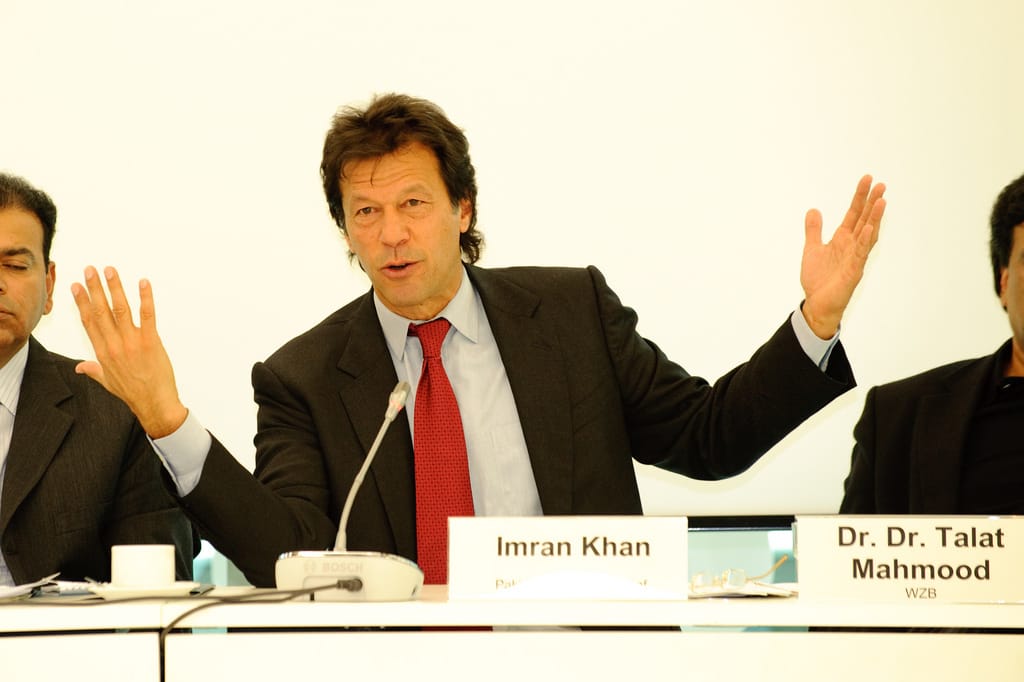Mr. Khan’s appointment shows no improvement for Ahmadis

The plight of the Ahmadiyya community in Pakistan is that they have been locked in a continuous fight for their right to live as ordinary law-abiding citizens; however, the law has not deemed them as being worthy to hold that status. The Ahmadis believe themselves to be just another Muslim sect, yet their belief is contested by the Pakistani constitution itself.
The Second Amendment to the Pakistani Constitution as well as Ordinance XX both declare Ahmadis to be non-Muslims, and deprive them of the right to worship and practice their faith freely. This deprivation has materialised because of their belief in Mirza Ghulam Ahmad, the movement’s leader, being the promised Messiah; a direct contrast to the core Islamic belief amongst many that Muhammad was the last prophet. As a result of this, the Ahmadiyya community has been subjected to regular persecution in all areas of the country. The violence against them has ensued for decades, since the 1953 Lahore riots to the Lahore Massacre in 2010.
This year has been no different for the Ahmadis; in February, the Azad Jammu and Kashmir Legislative Assembly (AJK-LA) also passed an amendment that classified Ahmadis as non-Muslims. In March, the Islamabad High Court ruled that all citizens are to declare their religious beliefs when applying for jobs in the public sector, further marginalizing the Ahmadis. In May, hundreds of people attacked a century-old, culturally significant Ahmadi mosque, and the killing of Ahmadis in their homes continued regularly until July.
‘The election in July showed no improvement or signs of change; with Mr. Khan remaining tongue-tied as four million Pakistanis were robbed of their right to vote.’
At present, Pakistan’s political playing field has never been more turbulent – it is an ideal breeding ground for more violence against minorities. The recent political turmoil largely arose from Ex-Prime Minister Nawaz Sharif’s release from jail. This hit current Prime Minister Imran Khan’s political standing with a major blow; and has only worsened with Khan’s hypocritical undertones in policy; for example giving Pakistani citizenship to Afghan refugees, whilst continuing to deprive the existing Pakistani-Ahmadi citizens of the their rights.
Shortly after the newly elected government settled in office, an Economic Advisory Council (EAC) was set up to research and advise on the country’s economic status. On this council sat Dr. Atif Rehman Mian, a highly-qualified Princeton University graduate who was also noted by the International Monetary Fund (IMF) to be one of 25 young economists who would reshape thoughts regarding the global economy.
These credentials, however, carried no weight because Dr. Mian was an Ahmadi. This aspect of what should have solely been a part of Dr. Mian’s private life, became the reason for fierce backlash from multiple religious parties (notably Tehreek-e-Labbaik) against his appointment to the EAC. In the face of this pressure, Imran Khan and his cabinet, instead of standing on their initial electoral promise of providing equal rights to all in a Naya Pakistan (New Pakistan), then asked Dr. Mian to resign. This sets an extremely dangerous precedent for almost every Pakistani citizen. By allowing one’s faith to be the basis for which they may or may not be employed, religious intolerance is legitimised.
Dr. Mian is one of many Ahmadis who have been subjected to such treatment. For decades, the Pakistani-Ahmadi community have been completely excluded from voting, purely due to their faith. The election in July showed no improvement or signs of change; with Mr. Khan remaining tongue-tied as four million Pakistanis were robbed of their right to vote. Instead, Khan has openly stated ‘with full conviction that [Ahmadis] cannot call themselves Muslim’. He has also shown his full support of Section 295-C of the Pakistan Penal Code, which sentences any said individual to death, if they engage in blasphemous acts, or speak blasphemously – an act which according to the law, Ahmadis are very much ‘guilty’ of.
While Ahmadis, along with other religious minority groups in Pakistan such as Hindus and Christians, wonder whether their fortunes will improve or whether they will fall victim to the same destiny as they have with past governments, it is worth noting that for any practical changes to be made, the very core articles of the Pakistani constitution must also be amended. Further, it is ironic that Khan champions the example of Pakistan’s founder, Muhammad Ali Jinnah, whilst at the same time disregarding his views on minorities. As Jinnah famously stated upon Pakistan’s creation: ‘You may belong to any religion, caste or creed – that has nothing to do with the business of the State’.
Anonymous




